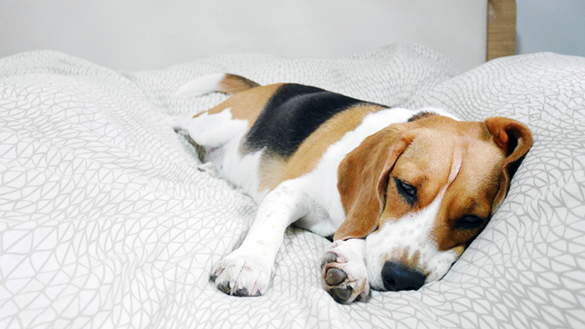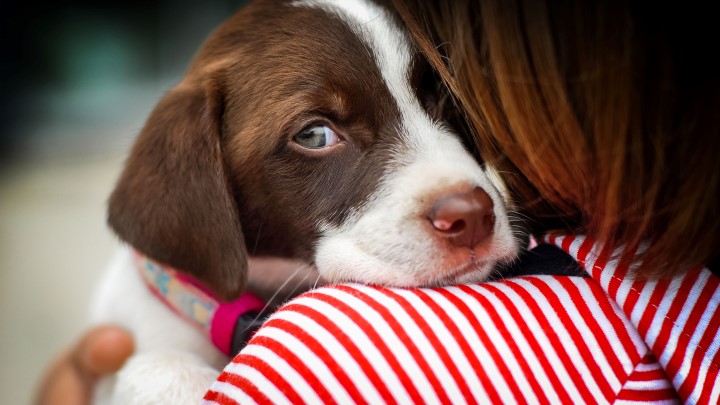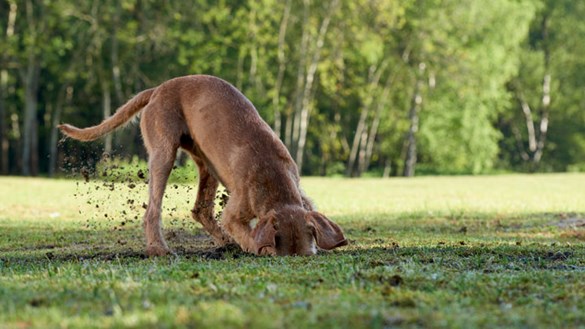Leptospirosis In Dogs
Leptospirosis is highly contagious and sadly can be fatal in dogs. Find out how to protect your pet, and your family, from bacterial infection.

Look out for leptospirosis
Leptospirosis (or Weil’s disease) is an infectious bacterial disease that’s often fatal in dogs and can affect humans too. While it’s still rare in the UK, recent reports of the disease prove it’s still one to watch out for, and it’s worth being aware of how to protect your pet and your family.
What is leptospirosis?
Leptospirosis is usually spread through the urine of infected wild and domesticated animals. It can also be caught from infected water and soil, and often becomes more common after heavy rainfall. The leptospira bacteria usually enter the body through the mouth, nose or open wounds and get into the bloodstream. They then travel to the liver and kidneys where there’s a risk of extensive damage.
Around eight to 10 days after infection, the animal’s immune system clears most of the bacteria from the body. However, the damage often leads to liver and/or kidney failure which can quickly become fatal.
Once an animal is infected, they may continue to excrete the harmful bacteria into their environment for several years, putting other animals and humans at risk. These animals are called carriers.
Symptoms of leptospirosis
There are many different types of leptospira bacteria and symptoms will depend on how much immunity your pet has and which organs are affected.
Symptoms can include:
- Fever and high temperature
- Jaundice (yellow gums and eyes)
- Muscle pain and limping
- Weakness and collapse
- Lack of appetite
- Increased thirst
- Vomiting
- Bloody diarrhoea
- Bleeding from the mouth and eyes
- Mouth ulcers
If you spot any of the above symptoms, contact your vet immediately.

Treating leptospirosis
Mild cases of leptospirosis are usually treated quickly with antibiotics.
If your pet has developed liver or kidney damage as a result, they may need to be admitted to hospital. Unfortunately, the damage caused is usually irreversible and often fatal.
Leptospirosis is a zoonotic disease, which means it can spread from animals to people. You should take extra care to prevent infection spreading at home, which can be particularly dangerous for young children. Dispose of any soiled pet bedding and thoroughly disinfect contaminated surfaces while wearing gloves. Always wash your hands afterwards. If you start to feel unwell, seek medical help.
Preventing leptospirosis
Thankfully, dogs can be successfully vaccinated against leptospirosis. The first of these vaccines should be administered as part of their initial puppy vaccinations at eight and 12 weeks. However, it’s important to remember that these initial vaccinations don’t protect them for life; regular boosters are essential to keep your pet safe and healthy, protecting against leptospirosis and other fatal diseases.
Always keep rodents like mice and rats under control throughout the house and garden as they can carry the leptospira bacteria. Prevent your dog from eating animal excrement or drinking from puddles while out and about, and always treat open flesh wounds as soon as possible.
For more advice about leptospirosis, contact your local Medivet practice.

Medivet Healthcare Plan
On average our clients save up to £280 each year with the Medivet Healthcare Plan.
Learn more

Pet Care & Advice
At Medivet, we’re committed to providing trustworthy, expert advice that helps you care for your pet.
Search advice




